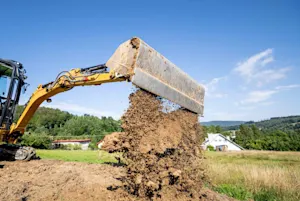What Makes This Word Tick
"Rudimentary" is the thingamajig of the vocabulary world — it's all about the basics, the very first steps in something before you get into the nitty-gritty. Whether we’re talking about a fledgling plan, a beginner’s understanding, or a primitive structure, "rudimentary" gives us that charming sense of simplicity and humble beginnings.
If Rudimentary Were a Person…
Rudimentary would undoubtedly be that enthusiastic rookie at the first day on the job, proudly wielding a fresh pair of squeaky-clean shoes and an earnest smile. They’d be full of potential, maybe a tad naive, but brimming with raw, untapped energy just waiting to blossom into expertise.
How This Word Has Changed Over Time
Over the centuries, "rudimentary" has kept its focus on simplicity and foundational characteristics. While its pinpoint target has always been on what's elemental and embryonic, it’s increasingly found its way into more contexts, from science experiments to educational curricula.
Old Sayings and Proverbs That Use Rudimentary
While "rudimentary" doesn't star in any ancient proverbs or adages, it certainly embodies the essence of sayings like "Rome wasn't built in a day," highlighting that greatness starts with basic steps. Picture those first bricks being laid—rudimentary but vital.
Surprising Facts About Rudimentary
Though "rudimentary" often implies simplicity, it can still involve something important or necessary. When archaeologists refer to rudimentary tools, for example, they're describing the lynchpins of ancient survival—tools without which society wouldn’t have flourished.
Out and About With This Word
You might hear "rudimentary" pop up in classrooms when learning foundational concepts or in biology where "rudimentary organs" denote early stages of development. It's that friend who turns up at both the art class for absolute beginners and the entry-level data analytics course.
Pop Culture Moments Where Rudimentary Was Used
"Rudimentary" isn’t a regular guest star in pop culture but when it makes an appearance, it's often in the context of beginnings—think of how children begin making rudimentary drawings or characters in TV shows starting with basic skills, only to master them over subsequent seasons.
The Word in Literature
In literary works, "rudimentary" usually appears to describe early or undeveloped stages of something—be it an idea, skill, or technology. It’s the word of choice for authors narrating tales of evolution, progress, and learning.
Moments in History with Rudimentary
The Industrial Revolution saw rudimentary machines evolve into the sophisticated powerhouses we know today. This period, marked by innovation from simple beginnings, is almost a history book’s love letter to "rudimentary."
This Word Around the World
Across languages, similar concepts to "rudimentary" accompany images of primacy and simplicity. In French, “rudimentaire” speaks to the preliminary, while in Spanish, “rudimentario” echoes the basics—reminding us that every culture understands the importance of a strong starting point.
Where Does It Come From?
"Rudimentary" hails from the Latin "rudimentum," which refers to an initial stage or first undertaking. Think of it as the word’s Latin root high-fiving us through the ages, still heralding the importance of beginnings.
How People Misuse This Word
"Rudimentary" can sometimes be mistaken to mean flawed or insufficient. In truth, it often speaks to necessary starting points or the base level of comprehension, without inherently suggesting any negative quality.
Words It’s Often Confused With
Primitive: Although both words imply early stages, "primitive" often suggests something ancient or simplistic in a potentially negative light.
Basic: While similar, "basic" lacks the developmental connotation that "rudimentary" carries, often used more broadly.
Elementary: Both refer to fundamentals, but "elementary" usually pertains more to early education or simple principles.
Additional Synonyms and Antonyms
Synonyms for "rudimentary" include basal, primary, and initial. On the flip side, antonyms could be advanced, complex, or developed, marking the end stages rather than the start.
Want to Try It Out in a Sentence?
"The garden was nothing more than a collection of rudimentary plots, each one a promise of the flourishing oasis it could become."
















